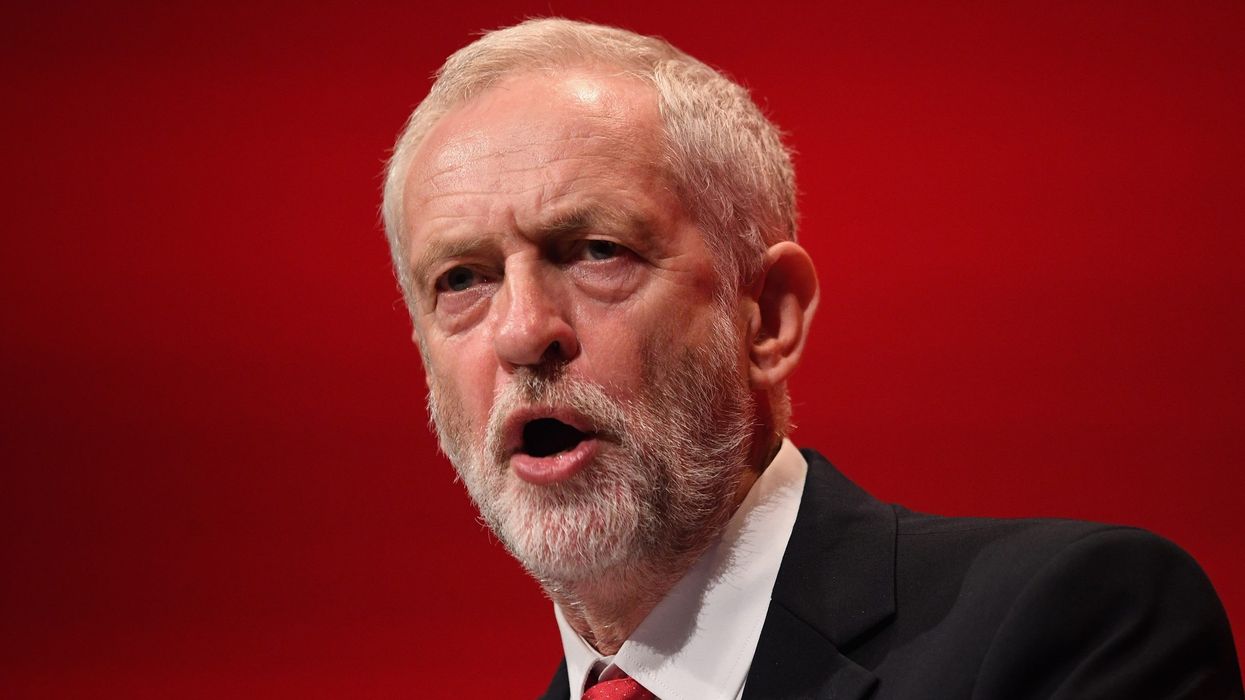Veteran left-winger Jeremy Corbyn won his parliamentary seat, beating the candidate of the Labour Party he used to lead and promising to be a thorn in the side of Keir Starmer's incoming government after an acrimonious falling out with his successor.
Corbyn resigned as Labour leader in 2019 after the party suffered its worst election defeat since 1935, and Starmer threw him out of the parliamentary party less than a year later, accusing him of undermining efforts to tackle anti-Semitism.
Starmer is now set to succeed where Corbyn failed and become prime minister, having tacked towards the centre-ground, and he often cites Corbyn's exclusion from Labour ranks in parliament as a sign of how he has changed the party.
However, in a bitterly contested vote in Corbyn's north London constituency of Islington North, which he has represented since 1983, he hung on to the seat, defeating Labour candidate Praful Nargund by 24,120 votes to 16,873.
"This result is to me a resounding message from the people of Islington that they want something different, they want something better," Corbyn said.
An avowed socialist, Corbyn took charge of the Labour Party in 2015 after a bruising election defeat, shifting the party sharply from the centre ground and energising his supporters.
He led Labour through the 2016 vote to leave the European Union and fared better than expected against Theresa May's Conservatives in 2017, until a crushing defeat to her successor Boris Johnson prompted his resignation.
His leadership of the Labour Party was extremely divisive, with supporters saying his popular policies were drowned out by negative media coverage, and critics attacking his approach to Brexit, handling of anti-Semitism allegations and lack of personal appeal in Labour's traditional heartlands.
An ardent pro-Palestinian activist, Corbyn said that the people who voted for him were "looking for a government that on the world stage will search for peace, not war, and not allow the terrible conditions to go on in Gaza at the present time."
Both the ruling Conservatives and the resurgent Labour party have said they want the fighting in Gaza to stop, but have also backed Israel's right to defend itself - angering some among the 3.9 million Muslims who make up 6.5% of Britain's population.
In a sign of how Labour's approach to the war in Gaza has lost them support in some areas, another independent candidate who had been endorsed by Corbyn, Shockat Adam, beat prominent Labour figure Jonathan Ashworth in Leicester South.July 5 (Reuters) - Veteran left-winger Jeremy Corbyn won his parliamentary seat, beating the candidate of the Labour Party he used to lead and promising to be a thorn in the side of Keir Starmer's incoming government after an acrimonious falling out with his successor.
Corbyn resigned as Labour leader in 2019 after the party suffered its worst election defeat since 1935, and Starmer threw him out of the parliamentary party less than a year later, accusing him of undermining efforts to tackle anti-Semitism.
Starmer is now set to succeed where Corbyn failed and become prime minister, having tacked towards the centre-ground, and he often cites Corbyn's exclusion from Labour ranks in parliament as a sign of how he has changed the party.
However, in a bitterly contested vote in Corbyn's north London constituency of Islington North, which he has represented since 1983, he hung on to the seat, defeating Labour candidate Praful Nargund by 24,120 votes to 16,873.
"This result is to me a resounding message from the people of Islington that they want something different, they want something better," Corbyn said.
An avowed socialist, Corbyn took charge of the Labour Party in 2015 after a bruising election defeat, shifting the party sharply from the centre ground and energising his supporters.
He led Labour through the 2016 vote to leave the European Union and fared better than expected against Theresa May's Conservatives in 2017, until a crushing defeat to her successor Boris Johnson prompted his resignation.
His leadership of the Labour Party was extremely divisive, with supporters saying his popular policies were drowned out by negative media coverage, and critics attacking his approach to Brexit, handling of anti-Semitism allegations and lack of personal appeal in Labour's traditional heartlands.
An ardent pro-Palestinian activist, Corbyn said that the people who voted for him were "looking for a government that on the world stage will search for peace, not war, and not allow the terrible conditions to go on in Gaza at the present time."
Both the ruling Conservatives and the resurgent Labour party have said they want the fighting in Gaza to stop, but have also backed Israel's right to defend itself - angering some among the 3.9 million Muslims who make up 6.5 per cent of Britain's population.
In a sign of how Labour's approach to the war in Gaza has lost them support in some areas, another independent candidate who had been endorsed by Corbyn, Shockat Adam, beat prominent Labour figure Jonathan Ashworth in Leicester South.




